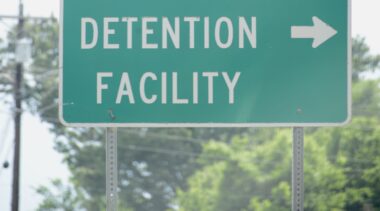-
Working Paper — School Sector and Climate: Evidence from New York
Public charter schools tended to report fewer school climate problems than district-run public schools in New York state in the 2017-18 school year.
-
Are Charter Schools Safer Than District-Run Schools? Evidence From Pennsylvania
This study finds that public charter schools generally report fewer school climate problems than district-run public schools in Pennsylvania.
-
Working Paper: Does Compulsory Schooling Affect Innovation? Evidence from the United States
We consider how the initial adoption of compulsory schooling affected state-level rates of patenting and real output per worker, finding declines in both once the originally affected cohorts reach middle age.
-
Understanding the recent nationwide increase in crime
Violent crime has decreased dramatically since its peak in the 1990s. In 2020, the violent crime rate remained near the record lows achieved throughout the 2000s.
-
Abolishing Ohio’s death penalty would be good for justice and for taxpayers
Since 1979, 11 people in Ohio have been exonerated while on death row awaiting execution.
-
Abolishing Oklahoma’s death penalty would be good for justice and for taxpayers
Since 1981, 10 people in Oklahoma have been exonerated while on death row awaiting execution.
-
Alaska House Bill 28 would help provide justice for those harmed by marijuana prohibition
Alaska lags behind other states when it comes to mitigating the harms done by marijuana prohibition.
-
Occupational licensing reform can reduce barriers to employment faced by former offenders
Lawmakers should consider occupational licensing reform to reduce government-imposed barriers to employment for former offenders.
-
Strategies for improving community supervision programs
Nearly 3.7 million adults are on community supervision programs like probation and parole across the United States.
-
Providing returning citizens with IDs and other essential documents can facilitate the reentry process
Over 80% of prisoners will eventually be released and roughly 500,000 people are released from prison each year.
-
Text message reminders can improve community supervision outcomes and reduce inefficiency
Nearly 3.7 million adults are on community supervision programs like probation and parole–that’s nearly twice the number of people incarcerated in jail or prison.
-
Monetary sanctions and court fees are counterproductive to the goals of juvenile justice
Each year, an estimated 1 million youth enter juvenile courts.
-
Examining recent crime trends and flaws in national statistics
It is important to understand crime data in context and avoid reactionary policy decisions.
-
Michigan requires greater transparency to support public trust in law enforcement
Michigan House Bill 5749 would clarify that law enforcement disciplinary records are not exempted from public records requests.
-
Missouri bills would protect free expression and artistic freedom
Senate Bill 661 and House Bill 1389 would create uniform standards for the admission of song lyrics and other forms of artistic expression into evidence.
-
How Occupational Licensing Hurts Florida’s Most Vulnerable
Florida could remove barriers to employment by eliminating unnecessary licenses and reducing the requirements for widely licensed occupations.
-
Solving Florida’s Blue-Green Algae Bloom Crisis
Algal blooms and their associated health risks have the potential to hurt large segments of Florida’s economy and public well-being.

















